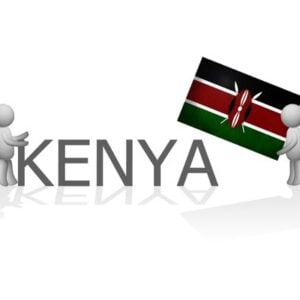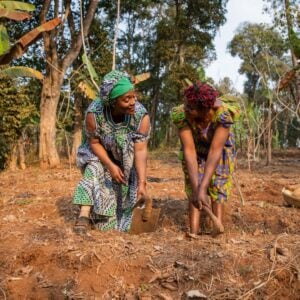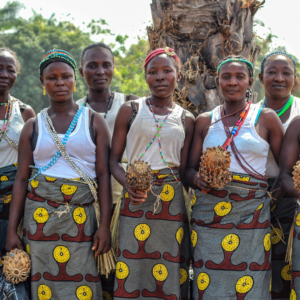Across Nepal, women farmers are transitioning from subsistence agriculture to income-generating enterprises, signaling a quiet yet powerful transformation in rural livelihoods. This shift is being driven by agricultural cooperatives, grants for modern equipment, improved technologies, and better market linkages that empower women to become entrepreneurs and job creators within their communities.
In Madhesh Province, farmer Anjali Devi Yadav exemplifies this change. Once burdened by debt after her husband migrated to the UAE, Anjali joined other farmers to access a grant from the World Bank’s Rural Enterprise and Economic Development (REED) project. The support provided her with seeds, sprayers, tools, and modern farming training, helping her establish a profitable vegetable business. Today, she delivers fresh produce to local markets, employs her husband—who earns more than he did abroad—and benefits from cooperative connections that ensure fair prices and steady demand. In 2024 alone, Anjali’s sales grew to 9.8 tons of vegetables worth Rs. 392,000, a substantial rise from previous years.
In Madichour Rolpa, buffalo farmers like Anisha Pun and Tirpani Baijali are also benefiting from REED’s market linkage initiatives. With improved access to buyers, they now sell milk directly to dairies, increasing household incomes. Grants enabled them to purchase high-yield Murrah buffaloes, and training in livestock management has enhanced productivity. Similarly, in Panchthar district, fifteen indigenous women from the Ngingma Chyanghthapu Chhyoling Women Farmers Group used REED support to start bee farming. They acquired modern hives, hired technicians, and launched their brand, Himalayan Herbal Honey, made from nectar of medicinal plants. This venture has not only diversified income sources but also reduced reliance on remittances from migrant family members.
Women across Nepal are leveraging REED’s initiatives to enhance productivity and financial independence. Shanti Khadayat, a goat farmer from Sudurpashchim Province, introduced high-quality Boer goats to replace low-yield indigenous breeds using a matching grant. The result was healthier livestock and higher market prices, with Shanti now sharing her expertise across her cooperative. Likewise, Urmila Ghale, a veterinarian, trained women in building improved animal sheds and invested in Murrah buffaloes with her cooperative. With better facilities and productivity, they now plan to sell milk and organic compost in Indian markets, where profits are higher.
Over the past four years, the REED project has mobilized more than $12.5 million in capital, generating over 12,000 jobs and benefiting 8,700 farmers across 171 municipalities and six provinces. Around 48% of its beneficiaries are women, and over one-third of its productive partnerships are women-led. Farmers are increasingly confident to invest because they receive technical support, market guarantees, and fair pricing structures that minimize risks.
Women-led producer organizations like Rana Samaj in Nepal have achieved remarkable results. Farmers like Santoshi and Kalpana report doubling their investments and achieving 100% profits from commercial vegetable farming. With improved market access, they have gained financial independence and no longer rely on remittances or male family members for basic expenses.
As REED approaches its fifth anniversary, it has established 74 Municipal Agricultural Livestock Service Centers (MALSCs) across Nepal. These centers act as hubs for mentoring, training, and technical assistance in livestock management, disease control, and agribusiness incubation. Although women constitute the majority of Nepal’s agricultural workforce, only about 32% own land. The government aims to increase this to 50% by 2035. With continued access to knowledge, financial tools, and market connections, Nepal’s women farmers are not only growing crops—they are cultivating confidence, resilience, and a more prosperous future for their families and communities.







